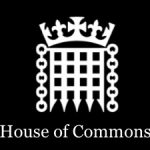The Capillary Wave

# 2. What Do You Know?
Via: C M EDWARDS October 2023
A Look At What Constitutes Knowledge

Introduction
These numbered articles on the public side of this website are jigsaw pieces full of lots of evidence and information about law and governance and how it affects your daily life. Some of the evidence and information will be new to you. Each numbered article here builds on the information of the last, thus putting together more and more of the picture of how you are governed, what the rules are, and whereabouts you fit in to that picture.
I do not like to take anything for granted, so I like to start at the absolute beginning. I have a long background in the building industry and I know that if you get the foundations of a building right, the rest of the project follows along much easier.
The publicly available articles are here to help you understand law and governance. The numbered articles will help you build up a better understanding of what it is that you are involved in. These articles will help you to understand the world around you, and why things are like they are in the world, they will help you make sense of things.
When starting at the very beginning, we all know that there are things ahead of us that we may not yet know, and that is to be expected and is normal. When dealing with the law you need to be extremely precise in your understanding, being nearly right may get you in to a lot of trouble, and listening to someone else’s opinions is nearly always a bad idea when it comes to the law.
• So how do you know that what you “know”is true, is correct?
• Has your basis of knowledge been built like “the five monkeys knowledge” in the link below?
Nescience vs. Ignorance
Nescience is being completely unaware of a thing. There is little liability if One is nescient. You can not know what you can not know, and you may not even be aware that there is something that you should know.
The word: Ignorance has a big clue in the word itself. If you “ignore” something, then there can be liabilities attached to it. If you ignore the warnings about a fence being electrified, you can hardly put a claim in for damages when you get an electric shock from the fence.
We all know that “ignorance of the law is no excuse”
So we start off as children in life; nescient, and we learn things along the way, some things are learned from experience as children – and in adulthood - most information about how society operates is “learned” by being told information by someone else, usually by someone more senior than ourselves, and in some position of trust. Therefore the information we are being told is generally accepted as true by us, based entirely on the trust of who is telling us the information. At law this type of “knowledge” would be known as “hearsay” evidence. Hearsay means that you did not experience something yourself, but that you gleaned the “knowledge” from someone else. Well, we shall discover that because most of us have learned about the world from someone else – and not via our direct experience – that hearsay evidence can have a dramatic effect on what you know to be true, and what is in fact true. You might be amazed at what is considered as hearsay evidence by this lawyer in the link below:
know
1 a (1) : to perceive directly : have direct cognition of
(2) : to have understanding of
importance of knowing oneself
(3): to recognize the nature of : DISCERN
b(1): to recognize as being the same as something previously known
(2): to be acquainted or familiar with
(3): to have experience of
2 a: to be aware of the truth or factuality of : be convinced or certain of
b: to have a practical understanding of
knows how to write
3 archaic : to have sexual intercourse with
intransitive verb
1: to have knowledge
2: to be or become cognizant —sometimes used interjectionally with you especially as a filler in informal speech
You Know What You Know Right?
• Are you sure that what you know to be true, that what you know to be a fact; is correct? Are you sure now?
• Where did you get that knowledge from?
• Were you told “your” knowledge by someone else? If so is that real knowledge of a thing, or is it hearsay?
The law would call a lot of what you “know”; hearsay.
Let us see if what you think you know is “knowledge” or hearsay. You know for an absolute certainty that:
1. Everyone has to have planning permission [in the UK] to build a house.
2. Everyone has to pay income tax.
3. Everyone has to have a licence to drive on the roads.
I mean it is completely obvious isn’t it? Those statements we all know to be true because everyone else does these things, so it must be true. Furthermore, a legal expert you might ask about the above numbered points, would also agree with you, thus again confirming “your knowledge” with their “expert knowledge”; now it absolutely, definitely, must be true; right? I mean it is so obvious that it is almost a stupid question right?
Wrong.
1. There is no law in the UK that says you have to have planning permission to build a house. No person has ever been taken to court for “failure to gain planning permission”. No species on Earth has to ask its fellow members if it can build a house, or shelter for its own family. It is a basic “human right”.
2. No, everyone does not have to pay income tax.
3. No, not everyone has to have a licence to drive on the roads. If you can get a licence, a permit to do an activity, it must mean that the same activity can be done without a licence, because you can not licence something that is unlawful.
Now, I know all of the above to be true. Presently you may not. You may now be beginning to have an understanding that my above statements might in fact be true, and with further examination and exploration, you may also come to know those statements to be true as well.
With each article here your understanding of the world around you will increase, and comments like the ones above will make much more sense to you as your understanding begins to align with reality. Confusion often comes when our level of understanding does not align with the reality of the situation, or your own perception of a situation; and your perception may be off, because the information that you currently rely upon to form your worldview may not be accurate.
To Have An Understanding And To Know
1660s, “to buy and sell as a broker” (intransitive), from job (n.). Meaning “deal in public stocks on one’s own account” is from 1721. Meaning “to cheat, betray” is from 1903; earlier “pervert public service to private advantage” (1732). Related: Jobbed; jobbing.
At this point in time, in this first one of my publicly available articles – this first jigsaw piece – you may not yet understand or know why the definition of a “Job” is seemingly so bad: “cheat,” “betray,” “pervert… for private advantage”. Everyone does a job, right? Why is the definition so bad?
By the time you read more of the articles here your current level of understanding and knowledge will catch up with the reality of things, and when reality and knowledge align, I feel that maybe that is where there is wisdom.
The reality is that the definition of “Job” is perfect. The fact that you may not yet understand why the definition says what it says, just means that there is much you do not yet understand, or know. When the current gaps in your understanding and knowledge get filled, your understanding will align with the reality of the situation, and you will then know and Understand for yourself.
If you want to truly know something, maybe you should question where you get your information from. Find out and discern something for yourself; I think that is the only way to “know” something, and the above definition of the word proves it.
It is demonstrably true that we do not know half of what we think we know. Through The Capillary Wave platforms, I hope to be able to give you a better understanding of the system of law and governance, so that you can truly begin to know some of this information for yourself, and not simply “know” what someone else told you [hearsay].
hearsay (n.)
“information communicated by another, gossip,” mid-15c., from phrase to hear say (Middle English heren seien, Old English herdon secgan). The notion is “hear (some people) say;” from hear (v.) + say (v.). As an adjective from 1570s. Hearsay evidence (1670s) is that which the witness gives not from his own perception but what was told to him.
understand (v.)
Old English understandan “to comprehend, grasp the idea of, receive from a word or words or from a sign the idea it is intended to convey; to view in a certain way,” probably literally “stand in the midst of,” from under + standan “to stand” (see stand (v)…It also seems to be the sense still in expressions such as under such circumstances. Perhaps the ultimate sense is “be close to;” compare Greek epistamai “I know how, I know,” literally “I stand upon.”
Know (v).
…Perceive or understand as a fact or truth (opposed to believe)
Famous Quotes On Knowing
• The general population doesn’t know what’s happening, and it doesn’t even know that it doesn’t it doesn’t know – Noam Chomsky
• The dumbest people I know are those who know it all – Malcom Forbes
• It is impossible for a man to learn what he thinks he already knows — Epictetus
• Real knowledge is to know the extent of one’s ignorance – Confucius
• The heart of him who has understanding seeks knowledge, but the mouths of fools feed on folly – Proverbs 15:14, KJV 1611
For more articles full of interesting information on Law and Governance please see the menu below.
If you enjoyed this article please consider sharing it. If you’d like to learn more about law and governance read the articles in ascending numerical order for the best outcomes. Other articles can be found either on the Home page or from the foot of this page.
In good faith
CME